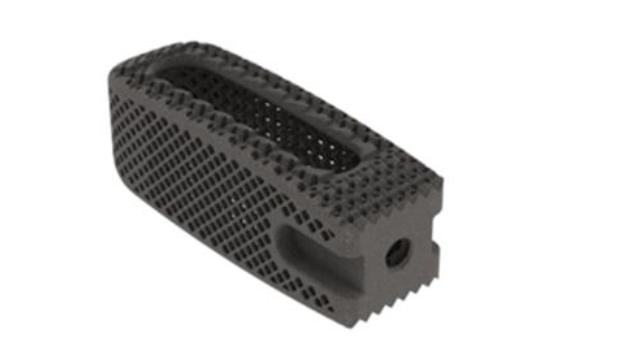K2M is a medical device company situated in Leesburg, Virginia. The company has received the 510k clearance for expanding its CASCADIA LATERAL Interbody system. K2M has received the FDA approval for many of its 3D printed lamellar 3D Titanium medical products.
Advanced 3D printing methods are used to create structures with complex shapes. Each 3D printed implant has a precise surface roughness of 3-5 μm which encourages the organic development of bone on and around the medical device. The latest of the K2M Lamellar technology product is the CASCADIA Lateral Interbody System which has received approval from the FDI. This device is a structure for lateral spine fusions.
This 3D titanium technology creates implants which have complex geometrical designs with 500µm longitude channels. The complex geometries and rough texture lead to bone growth activity, which is owing to the infused titanium powder used to make the CASCADIA Implants. The CASCADIA design has a reverse hourglass structure which works as an in vertebral body fusion device. It provides support and strength to the spine. There are numerous sizes and heights designed to accommodate various spinal structures. This work is being commenced in association with the RAVINE Lateral Access system.
The FDA approval comes as a boon to K2M as it will now further improve the existing CASCADIA system. This is widely being used by surgeons and the biocompatibility and on growth features of titanium, is achieved with3 D printing. These characteristics allow surgeons to use the CASCADIA Systems in a customised way for their patients. They can now address the sagittal plane requirements of each patient individually, as the graft volume and surface area are tremendous. This system is 70% more porous which reduces the radiographic signature. The stiffness is similar to that of K2M peek designs. All these unique features have been achieved by 3D printing and are provide greater comfort, support, and strength to the spine.
Source: 3ders.org
